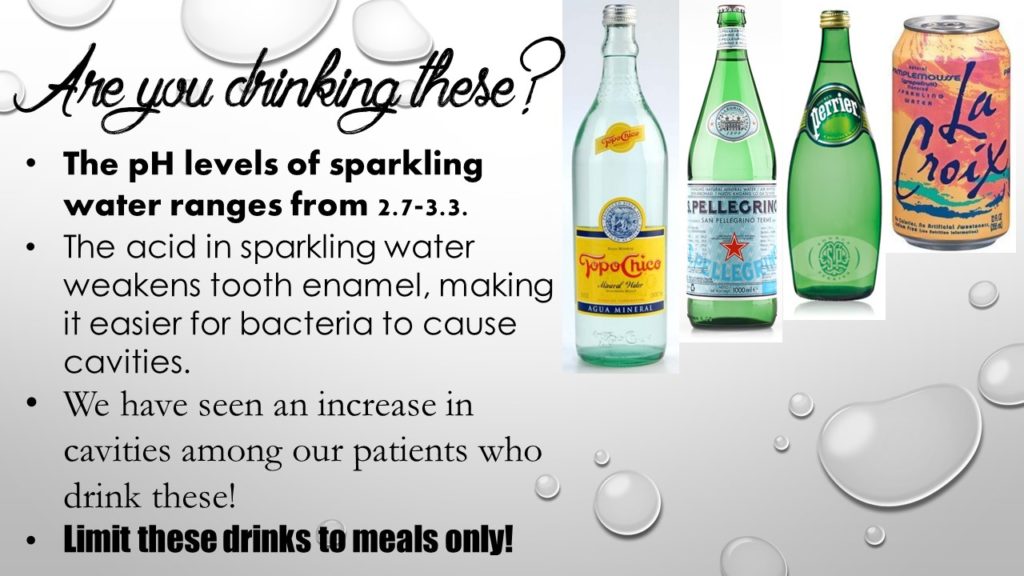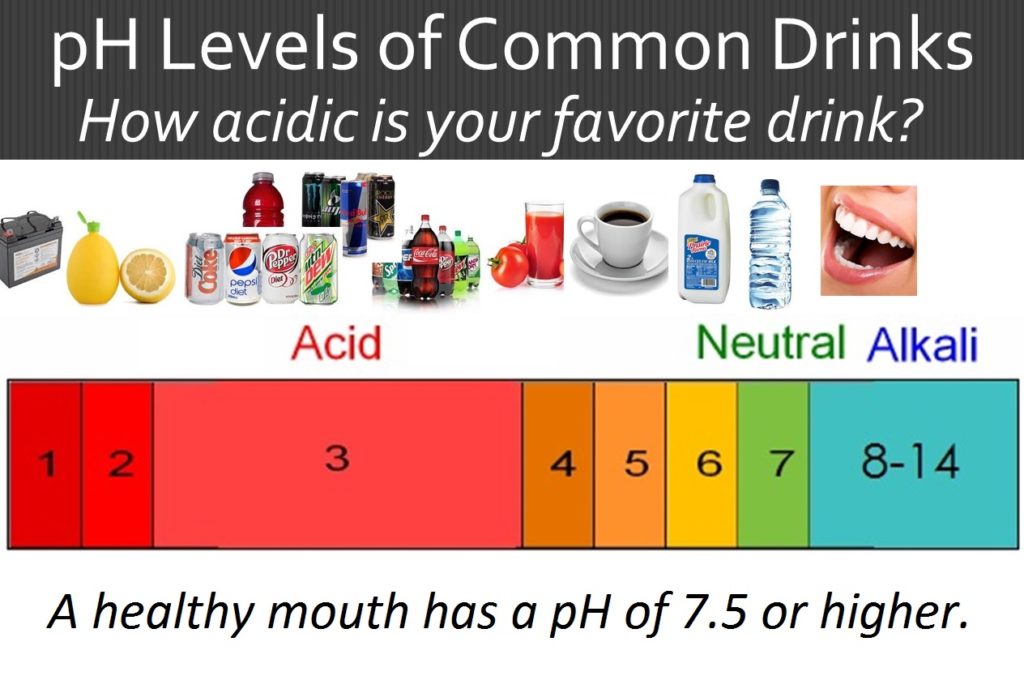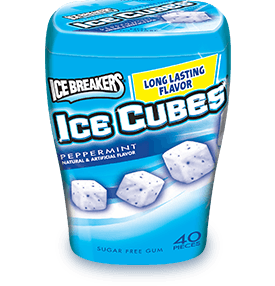Sparkling Water: A Surprising Cause of Cavities
 Most people know that foods and drinks high in sugar can cause cavities. It is common knowledge that sodas and candy are bad for your teeth. What many people are unaware of is that sparkling water can also damage the teeth.
Most people know that foods and drinks high in sugar can cause cavities. It is common knowledge that sodas and candy are bad for your teeth. What many people are unaware of is that sparkling water can also damage the teeth.
Due to an increase in its popularity in recent years, we are frequently asked about sparkling water (carbonated water) and whether it can damage your teeth. Although most sparkling water contains nothing more than carbonated water (perhaps with a few minerals) and natural flavors, most people do not expect it to be as acidic as soda, which typically contains phosphoric acid. Unfortunately, sparkling water is very acidic due to the carbonation process, which forms carbonic acid.
Yes, Sparkling Water Can Harm Your Teeth!
A group of researchers at the University of Birmingham in the United Kingdom wanted to find out if sparkling water could cause enamel erosion.
First, they measured the pH of various sparkling waters and found a pH of around three (ranging from 2.7-3.4). This pH level is just as low as most sodas!
This research group took some extracted teeth and placed them in glasses filled with different types of flavored carbonated waters. They found that the sparkling water does erode away tooth enamel. In fact, they found that flavored sparkling water has as much or more of an erosive effect on teeth as orange juice, which is known to be very damaging to teeth.
The following is what this group of researchers concluded:
“Flavored sparkling waters should be considered as potentially erosive, and preventive advice on their consumption should recognize them as potentially acidic drinks rather than water with flavoring.”
In other words, sparkling water can erode your tooth enamel and should not be considered “water” at all. Rather, it is more appropriately classified as an “acidic drink”.

What does this mean for your teeth?
Enamel is the hardest substance in the human body. It is a protective coating over the core nerves and blood vessels in our teeth. The purpose of our teeth is to chew food; the enamel serves to withstand the mechanical and chemical forces that teeth are subjected to as they do that job. Anything that softens, erodes, or breaks enamel is bad because it weakens the tooth. Enamel erosion makes it easier for the bacteria in our mouths to cause cavities and can cause major breakdown of your teeth, which causes the need for more dental work in your future.
A healthy mouth has a pH level slightly above neutral (7.0). Anything below neutral is an acid. Enamel begins to soften or demineralize at a pH of 5.5 or below. Many of the things we eat and drink are lower than 5.5 pH. In a normal, healthy mouth, saliva can act as a buffer and bring the pH back up to neutral once the acid is gone (i.e. once you have stopped eating or drinking).
What should you do?
- Be aware of the sparkling water that you consume. Some sparkling waters are flavored with citrus flavorings such as lemon, lime, orange, etc…, which add citric acid on top of the carbonic acid.

- Pay attention to the amount of sparkling water that you consume. You should never be drinking more sparkling water than regular water.
- Do not slowly sip on acidic drinks throughout the day. This makes it more difficult for your saliva to keep your mouth at a neutral pH. Drink it quickly.
- After drinking a sparkling water, rinse your mouth with water to help quickly return it to a neutral pH.
- Chew sugar-free gum after drinking something acidic. This helps to stimulate good saliva flow and return the pH to neutral.
Special Considerations:
If you have a high risk for cavities, you should stay away from all acidic drinks. If you do not know your cavity risk, ask Dr. Ann or Dr. Lauren at your next dental visit.
If you have a dry mouth, you do not have the proper amount of saliva to counteract the acid in these drinks, so you should stay away from all acidic drinks.
Would you like more information about how acidic drinks like sparkling water can affect your teeth?
Call our office today at 281-667-4010 to schedule a consultation with Dr. Ann or Dr. Lauren!
